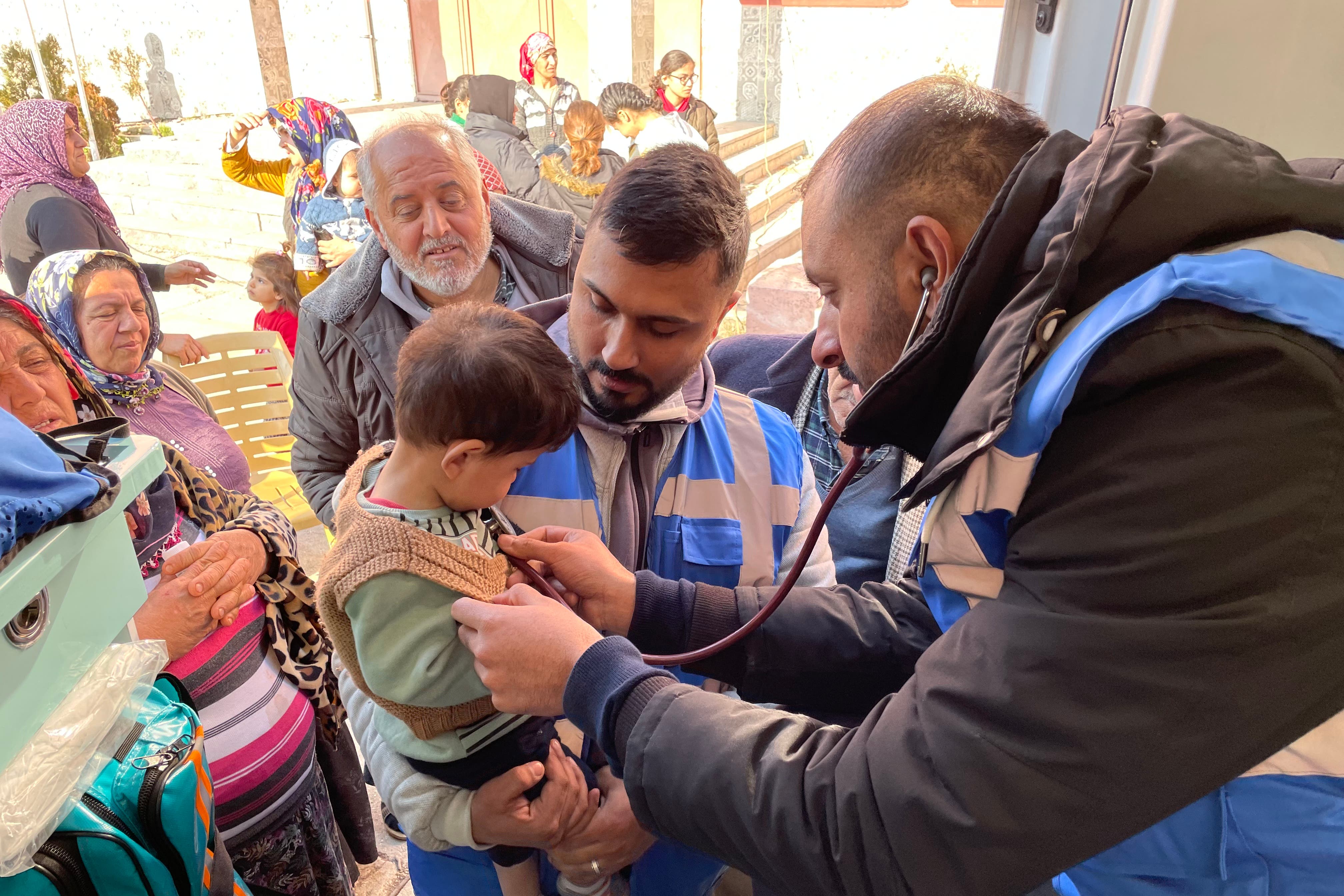No sense of panic or chaos from Turkish authorities, says NGO volunteer
Basheer Khan travelled to Turkey on Wednesday as part of a non-governmental organisation.

Your support helps us to tell the story
From reproductive rights to climate change to Big Tech, The Independent is on the ground when the story is developing. Whether it's investigating the financials of Elon Musk's pro-Trump PAC or producing our latest documentary, 'The A Word', which shines a light on the American women fighting for reproductive rights, we know how important it is to parse out the facts from the messaging.
At such a critical moment in US history, we need reporters on the ground. Your donation allows us to keep sending journalists to speak to both sides of the story.
The Independent is trusted by Americans across the entire political spectrum. And unlike many other quality news outlets, we choose not to lock Americans out of our reporting and analysis with paywalls. We believe quality journalism should be available to everyone, paid for by those who can afford it.
Your support makes all the difference.A British non-governmental organisation (NGO) volunteer has said that despite areas in Turkey affected by the earthquake looking like a “zombie apocalypse” and the potent stench of death, there was no sense of panic or chaos from authorities there.
Basheer Khan spent five days in Turkey from Wednesday February 8 with a group of volunteers from different countries, who are part of the assessment team at international NGO Humanity First.
The team included logisticians, doctors and local guides and translators, and comprised of three members from Turkey, two from Germany and two from the UK.
“Our key task was to go over there, work out what the lie of the land was, where the areas of greatest need were and also talk to all the authorities to work out what help we could provide”, the 39-year-old, who lives in London, told the PA news agency.
“And then we can make the arrangement and plans for getting our main teams out there.”
He said that he was staying in Adana while there, which was right on the edge of the earthquake zone.
“I was pretty much okay”, he said.
“But when you start getting closer to cities near the earthquake epicentre, it was like coming out of a computer game, like a zombie apocalypse.
“There were huge buildings – half had collapsed, half had huge cracks.”
He added that in Antakya, in the Hatay province, “every other house was either rubble or had major damage to it”.
He said: “You could smell the stench of death around you, but there was no sense of panic or chaos in any of the places we visited.
“It seemed as though the authorities had got things under control.”
He added that every public servant the team met in Turkey were “courteous, helpful and considerate, even though they experienced the worst catastrophe that has ever hit their country”.
He said: “When our German team arrived, they arrived with a lot of equipment – around 15 trolleys worth of equipment and we found it difficult to find cars or vans to hire.
“We spoke to someone from AFAD and a couple of hours later, they rocked up with a big truck.
“We’re there to help, but they’re quite self-sufficient as well.”
He also spoke about an occasion when he saw a table with toys for children fleeing the earthquake zone at Antalya airport on Sunday, which showed how much the Turks had “thought of the small things”.
He said that a lot of hospitals have been damaged from the earthquake.
He added: “On the first day I went there, I saw a brand new hospital which was almost nearing completion which is now completely unusable, except for a couple of rooms.
“You had people treated in one room and next door they had the morgue and the stench of death.”
He added that because many doctors had died from the incident and due to the consequences of it, Humanity First helped to provide the immediate primary and emergency care that would have been provided by the hospital that are not there in the same capacity anymore.
“The Turkish Government may say stay for a few weeks, or a few months or longer, we don’t know, but at the moment we are here to help as much as possible”, he said.
“At the moment, we’ve got doctors out there from Germany and the USA, with a team from the UK flying over on Friday – we’re sending out a lot of specialists, particularly doctors.”
He added that one of the biggest concerns facing people in Turkey is the psychological impact of the earthquake on them.
Even though they may have escaped completely unscathed, they may have PTSD from being inside a building, even I felt a little bit shaken seeing the state of the buildings and I have not experienced the earthquake myself
“A lot of people are now living outside and the psychological impact of that cannot be underestimated,” he said.
“Even though they may have escaped completely unscathed, they may have post-traumatic stress disorder (PTSD) from being inside a building, even I felt a little bit shaken seeing the state of the buildings and I have not experienced the earthquake myself.
“There are going to be longer term mental health issues and possibly public health issues around waterborne diseases and it is really cold at the moment, so those are the things we are most concerned about.”
Humanity First was also involved with helping to transport and relocate some Syrian refugees in the initial days of the earthquakes.
The NGO has an appeal running, which aims to continue providing warm clothing and hygiene equipment to those in Turkey and Syria, as well as setting up medical camps in Turkey.
More information about it can be found here: https://humanityfirst.org/turkiye-earthquake-2023/